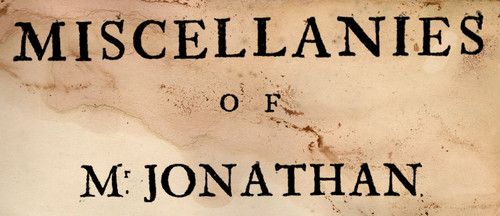
unearths some literary gems.
From The Body on Page One, by Delano Ames:
***
He has written a concerto for Factory Siren, accompanied by muted voices. The score calls for a thousand male voices who symbolise steel-mill workers on strike.
***
“Incidentally, I’m no good at this kind of conversation.”
“But only one of us need be,” he said.
***
[Genericized Names Department, Inanimate Objects Division]
"[The stove] is a Regulo, Mark Something-or-other."
***
Dagobert has never been an automat at the breakfast table.
***
You simply call the book: Harold Quinn. By page two or three hundred you’ll have the reader glancing nervously back at the cover to see whether he’s got the right book, and from there on you’ll have him gripped.
***
Over the coffee we decided to put off Ischia for another time and settle down in a small Alsatian village that Dagobert either knew about or invented on the spot.
***
“Shall we go around to the Dog and Duck, or shall I get noisy and excited here?”
***
“I believe in a certain amount of independence between husbands and wives,” I said, “but never again leave me with men who insist upon being called Claude.”
***
He had a nervous trick of removing his horn-rimmed spectacles just when he needed them most, and without them he was half blind.
[Cf. The character in another book--also Ames?--who stares fiercely through his eyeglass but would have had an easier time following the action without it.]
[And, a few paragraphs later.]
He readjusted his spectacles with a fumbling movement, as though he had momentarily forgotten where his ears were.
***
“It just shows, doesn’t it? Plus ça change. . . . By the way, it’s still on this week,” he added, forgetting the rest of the quotation.
***
“Really, old boy, this won’t do. It won’t do at all! Not good enough, don’t y’know.”
His voice must have come from the same public school as his necktie: both were imposing, but unknown to me. Dagobert was as impressed as I was. He sat down on the divan, murmuring to himself:
“Dontcha know, don’t yer-know . . . I wish I could say it that way.”
***
[Very Wodehousian, this!]
“This,” he nodded briefly, “etcetera.”
“Et, as you say, cetera,” I repeated.
***
It would have been easier if someone had protested or argued. Dagobert likes talking only if there is some competition.
***
[Genericized Names Department, Mme. Chose Division.: A character called Elsa, whose surname turns out to be Huggins, is referred to by someone earlier on as Elsa Thingamajig.]



